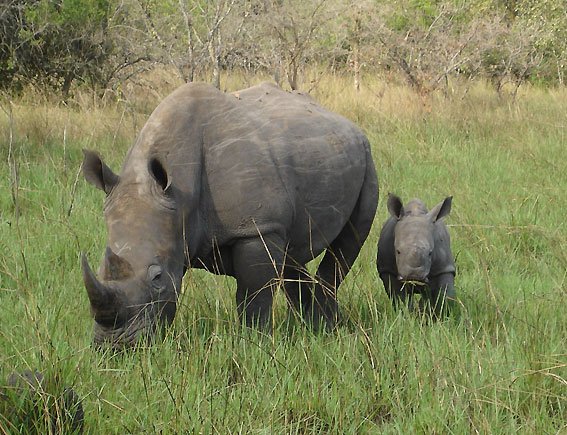There is a ray of hope for animal conservationists as three new Javan rhinoceros calves have been identified in Indonesia’s Ujung Kulon National Park. The park is the final safe haven for the Javan rhino, which is critically endangered.
As of now, there are only 60 Javan rhinos left in the world. And while that number seems small, keep in mind that the population was down to 30 living Javan rhinos about 50 years ago.
Like with most endangered species, years and years of poaching and the destruction of their natural habitats have caused the number of Javan rhinos to require protection. As a result, the remaining, living Javan rhinos are now roaming Ujung Kulon.
The new videos of the three baby Javan rhinos, captured by cameras placed throughout the park, provide good news. Barney Long, director of species conservation for the World Wildlife Fund for Nature (“WWF”), says that the presence of the baby rhinos “is evidence that Javan rhinos are reproducing in the wild. I think the key thing to remember is that rhinos are recovering. The videos demonstrate that with the right conservation measures, you get more babies.”
Despite the promising news, a lot of issues remain regarding the sustainability of the species.
An unfortunate reality is that Ujung Kulon is located very close to the active Anak Krakatau volcano. A major volcanic eruption or explosion could wipe out the entire Javan rhino population in an instant.
Another problem that is facing conservationists is that with 60 rhinos living in the park, it is just about at capacity. If many more rhinos are placed in the park, there is a real concern that they will not be provided with adequate space and resources. A large population of rhinos in one area also slows down the rate of reproduction. For example, a female rhino typically gives birth to one calf every three to five years. However, when the population is dense, that number declines. In order to prevent this from happening, WWF is researching options to provide another home for the endangered species.
WWF is also encouraging local people and hiring rangers to protect the small population from poachers. Long points out that, “We need a lot more attention paid to this species. We can recover it, and we know how to recover it . . . we just need to make sure the world is paying attention.”
Stay Connected